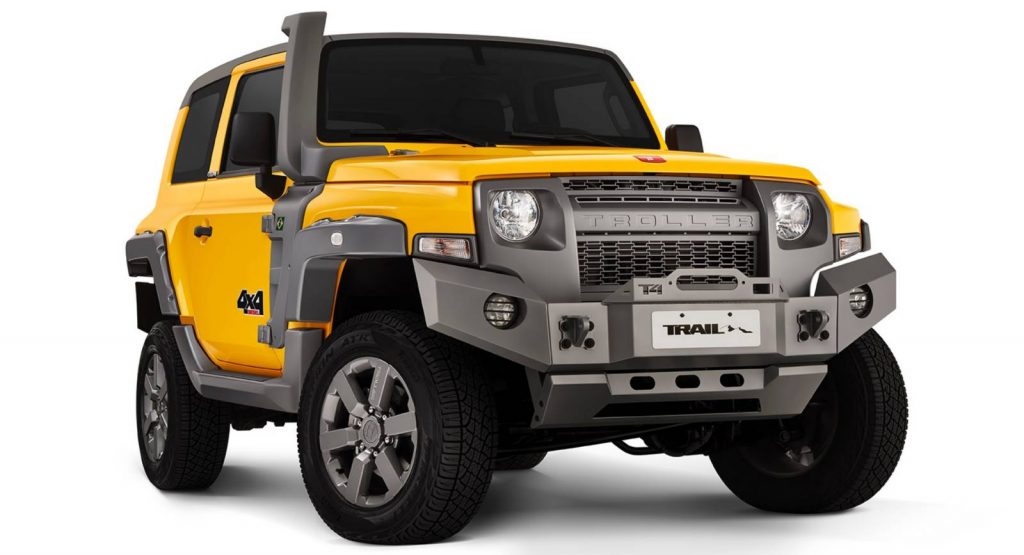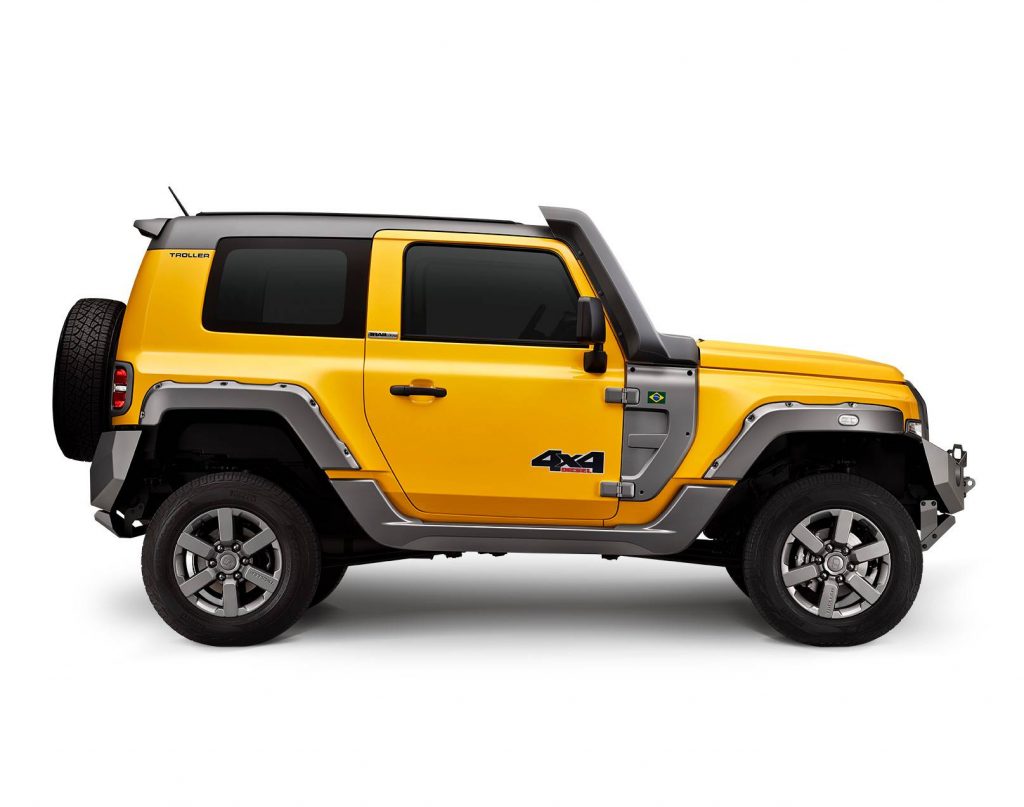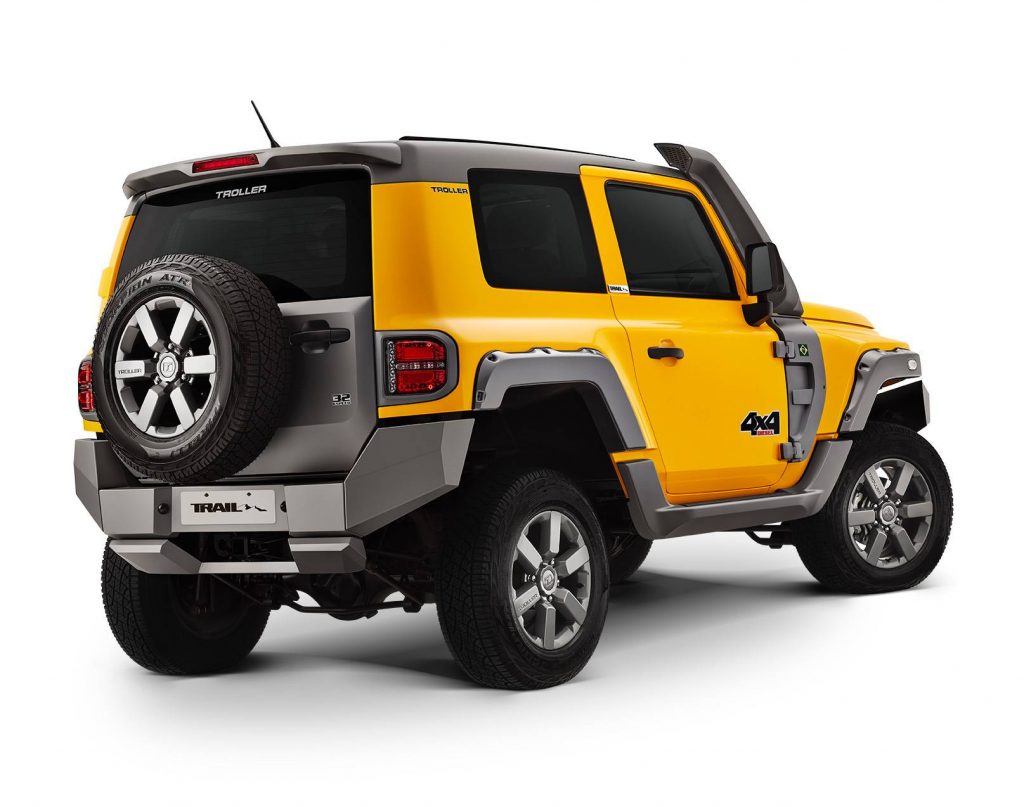While U.S. customers are eagerly waiting for the new Bronco off-roader, Ford has been offering such a model for quite some time in Brazil.
It’s called the Troller T4 and it has just received a new “Trail” version. Troller is a separate brand in Brazil, but the underpinnings of the T4 SUV have Ford written all over them as, since the 2014 redesign, the T4 switched to a shortened version of Ford’s T6 platform used in the global Ranger pickup truck.
Now, the Troller T4’s newly-launched Trail version aims to increase the rugged SUV’s appeal by adding unique accessories that enhance its ability to tackle severe off-road terrain.
Also Read: 2021 Ford Bronco Could Have A 2.3-Liter EcoBoost Four-Cylinder Engine
For starters, the T4 Trail adopts off-road bumpers that improve the approach and departure angles, as well as a snorkel that allows the SUV to go through deeper water with more peace of mind, while the front bumper comes with tow hooks and preparation for the installation of a winch.
The wheel arch cladding, side skirts, front fender panels, roof spoiler, and tailgate are painted in the same matte grey color as the bumpers. Customers can choose between nine exterior colors to go with the matte grey treatment: Diamond White, Arizona Red, Dakar Yellow, Mendoza Black, Frost Silver, Maresias Blue, Moscow Grey, and Red Tuscany.
The Troller T4 Trail is the first product to come out of the brand’s newly-founded ModCenter modification center at the Horizonte, Ceará plant. Priced from R$144,990 (approximately $38,000), the T4 Trail features the same underpinnings as regular models. Power comes from Ford’s Duratorq 3.2-liter five-cylinder turbodiesel that delivers 200 PS (197 hp) to all four wheels via a six-speed manual transmission and a 4×4 system with electronic low range.
The rugged off-roader features a rust-free composite body mounted atop a ladder frame chassis that ensure durability during all-terrain use. Unlike the Ford Ranger, though, the T4 gets a Dana rigid front axle. As a result, it offers impressive 51-degree approach and departure angles, a 30-degree breakover angle, and is capable of climbing 45-degree ramps.












